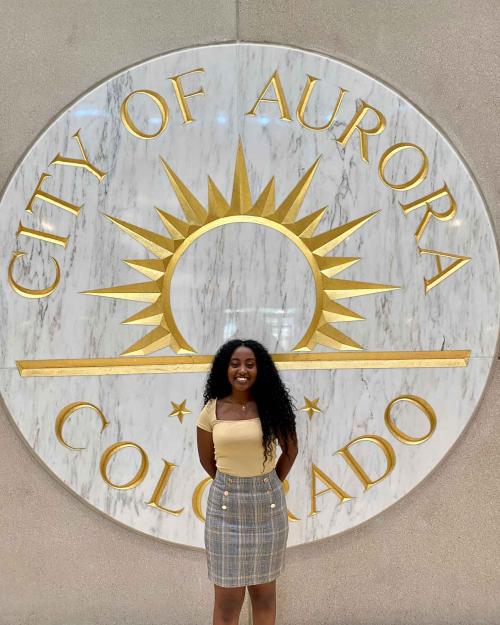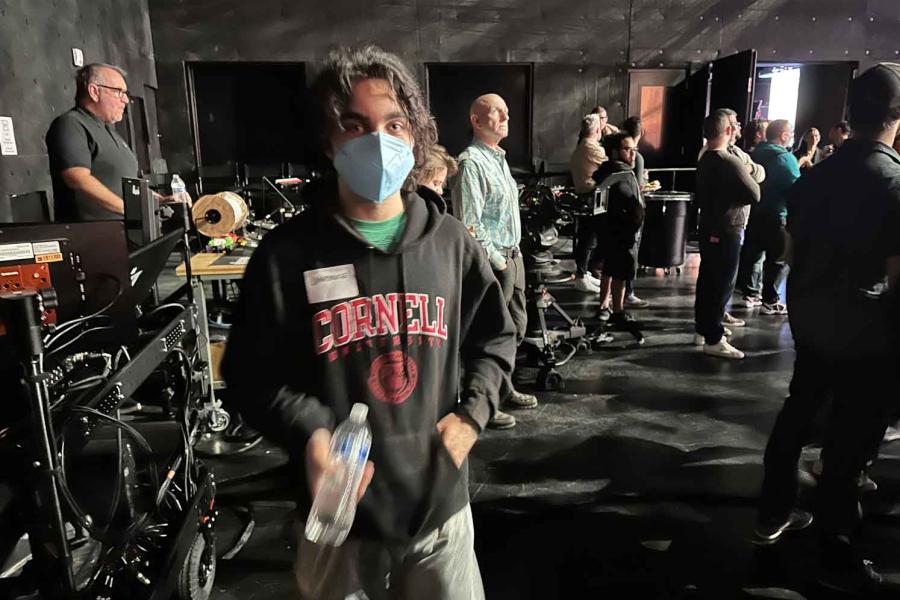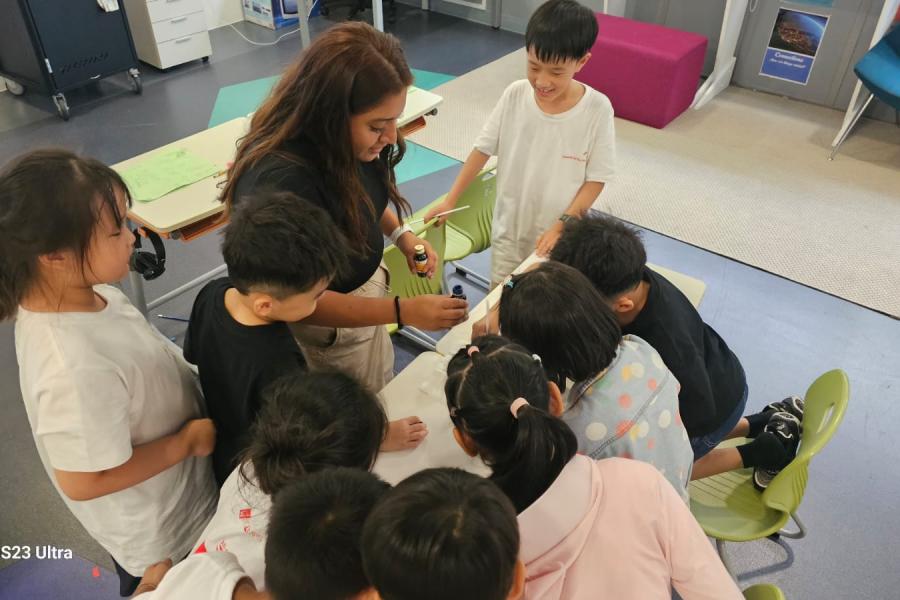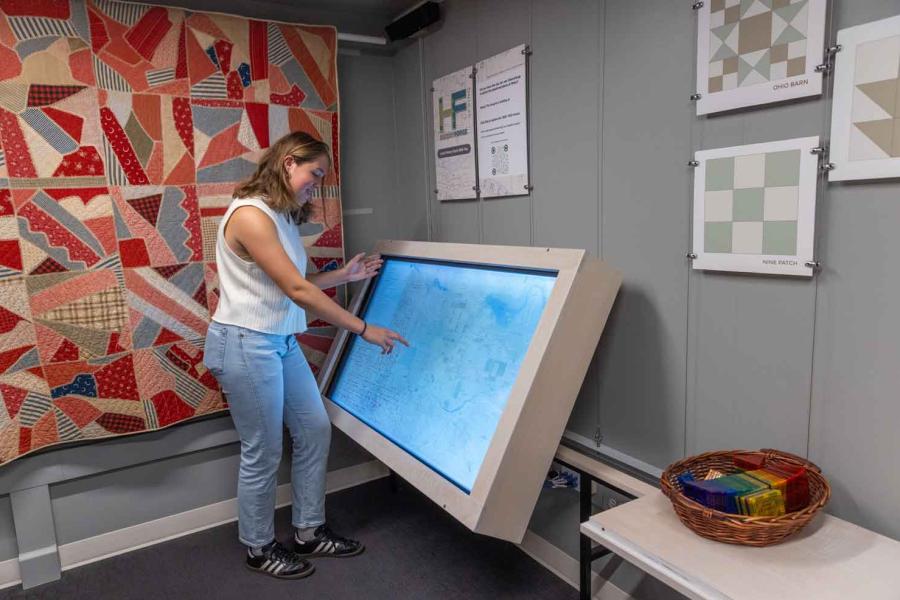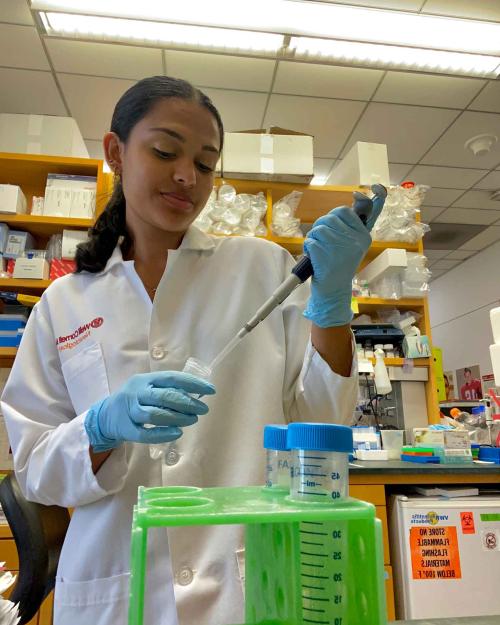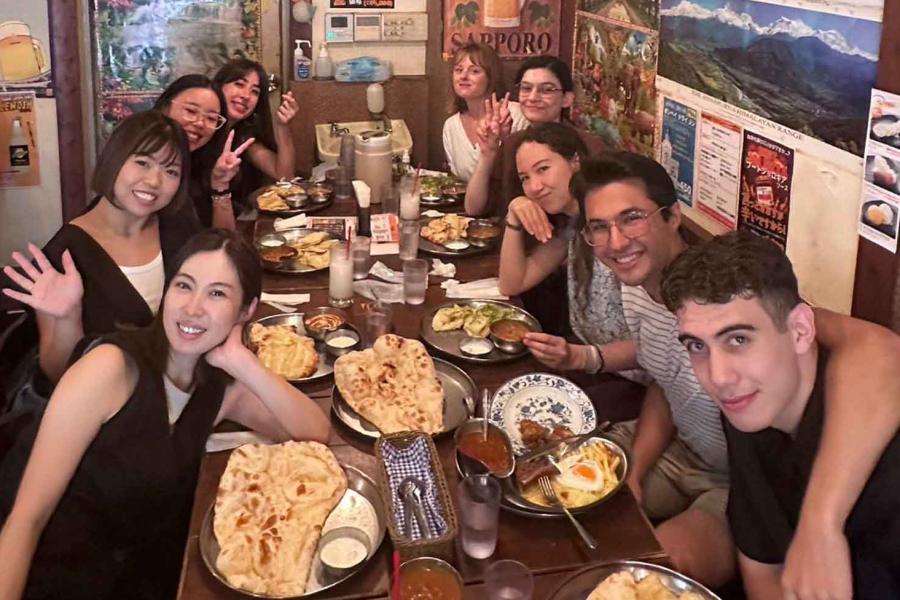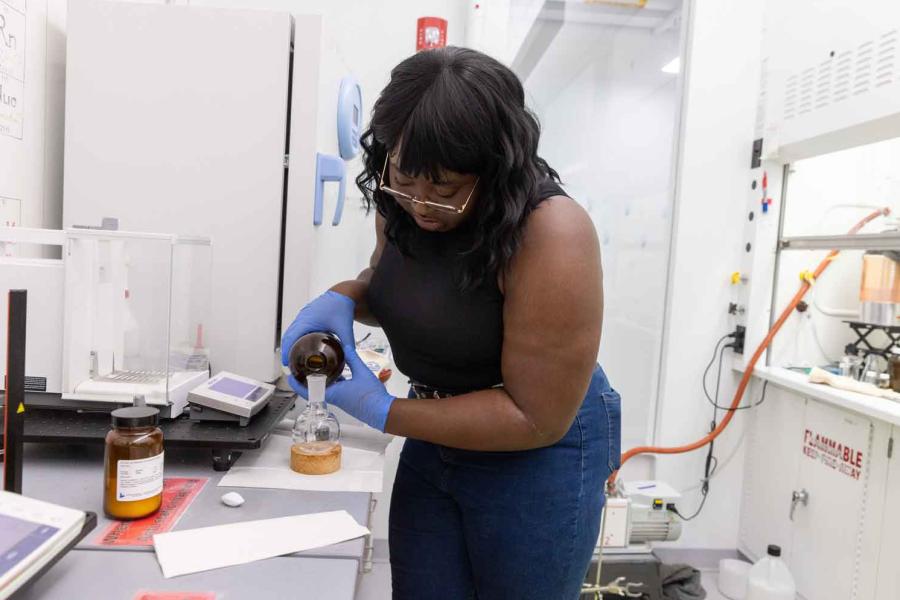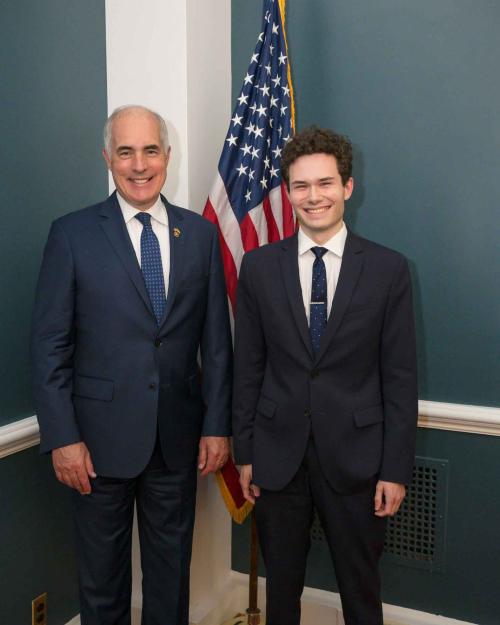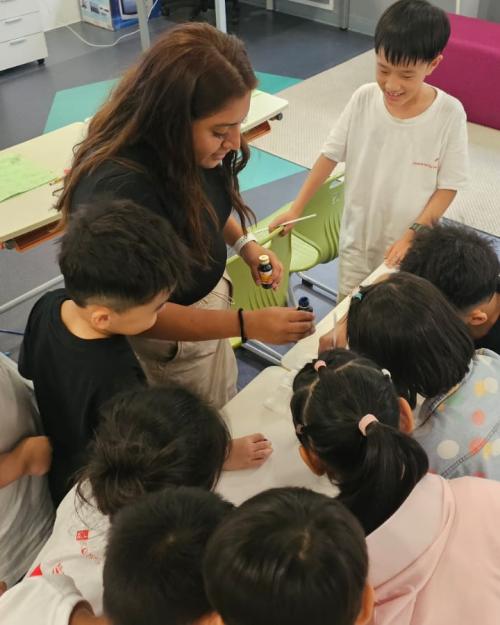Sometimes it’s hard for Cornell students to accomplish all that they want to do during the summer.
They want an experience that will help them move forward with their career or grad school plans, but they also need to have a paying job so that they can help with expenses or fulfill their financial aid requirements.
That’s where Summer Experience Grants come in. A fund established in 2019 by the College of Arts & Sciences expanded upon grants already offered by Cornell’s Student Assembly to provide funding to help students cover the costs of housing, transportation, food and other expenses.
The grants, which helped 139 students this year, allow students to take minimally-paid or unpaid summer positions and are made possible through generous alumni donations. This year’s grants totaled $437,346.
Students are also eligible for help from the Student Contribution Fund, which provides support for A&S undergraduates who are unable to save money for the student contribution portion of their financial aid package.
Exploring a career in the courtroom
For Elda Abayneh ’26, the grant has helped her to afford an unpaid summer internship at the public defender’s office in Aurora, Colo. There, she works with a deputy attorney reviewing body camera tapes from police, reading police reports, meeting with clients in prison and observing trials at the courthouse.
“As a first-generation American and first-generation college student, there’s no one in my family who’s a lawyer or who has had this kind of experience,” said Abaynah, whose parents came to the U.S. from Ethiopia. “I wanted to explore what it would be like to be a lawyer and learn how the criminal justice system worked.”
She developed an interest in a career in law after the murder of George Floyd, eventually volunteering on an advisory group to the police department in Aurora, her hometown, and helping the department hire a youth violence prevention manager. She also joined an organization that helps educate youth about the criminal justice system.
“It seemed like after George Floyd, there was so much anger between the youth and police. We were just yelling at each other,” she said. “But these organizations are all about making the changes we want to see.”
Her work this summer has opened her eyes to the many gray areas that exist in a typical case. “Sometimes I truly believe our client is innocent and doesn’t deserve the charges, other times I look at the police cameras and reports and I’m conflicted,” said Abayneh, who plans to major in government.
All summer, she’s also been preparing for her own mock trial. Her supervisor gave her a case to work on, so she’s been writing opening and closing statements and developing questions for witnesses and cross-examination. She’ll present her case to other attorneys on her last day.
Without the grant funding, Abayneh said she’d have to take on a regular paying job to help with family expenses.
“My family and I are under some financial hardships right now, but I’ve been able to work without feeling burdened,” she said. “The grant helped to lighten the load.”
A chance to refine his 'Houdini' skills
Lawrence Daniels ’25 has spent the summer working for Luminetik, a small VFX/digital entertainment company that does work for television, movies, video games and other projects.
“I've been learning to do facial tracking and mapping onto character models,” said Daniels, a computer science major. “The most challenging thing has probably been learning and refining my skills in Houdini (3D animation software) just because it is such a complicated program and really takes years to master.”
Daniels said the summer work helped him to think about what he might want to pursue in the future.
“I think that technical work adjacent to the entertainment sector would be fairly interesting and aligns with a number of my passions,” he said. “I was mildly interested in that kind of work beforehand, but I think this experience has solidified that.”
The SEG funding was important, he said, especially given the writers’ and actors’ strikes in the entertainment industry, which have put projects on hold and caused some budget belt-tightening.
“It helped me pay for rent in an area closer to my workplace, pay for transportation and simply support myself during this time, as well as helping with PC (personal computer) troubles and such,” he said. “If not for the grant, I would have probably had to spend my summer working at a normal job and not advancing my career interests.”
Teaching students in Singapore
In Singapore for the summer, Lesly Morocho ’24, teaches students all day as part of the Ivy Camps USA program.
Teachers share knowledge on a host of topics in science, technology, engineering, the arts and math, as well as teach public speaking and English. Most of Morocho’s students speak Mandarin.
“The language barrier makes it difficult to teach, but it has also helped me find different ways for the students to learn by using interactive activities and brainstorming ESL games in order for them to be confident, creative and innovative,” she said.
Morocho, a biology and society major, used the SEG funding for travel expenses to Singapore, as well as travel within the country to her job.
Morocho plans to apply for the Teach for America program after graduation and eventually go on to pursue a master’s degree in healthcare administration, so she’s enjoyed learning how a company like Ivy Camps works.
Becoming an expert on local history
Celia Doherty ’25 has become an expert on Ithaca history, thanks to her summer project expanding historical information on the Tompkins County installation of HistoryForge website for The History Center in Tompkins County.
On the History Forge website, users can select a house and see information about past residents, including their names, occupations and ages, and photos of the property as they are added. The open-source platform has received funding from the National Endowment for the Humanities and the National Archives and is partnering with other cities, including Auburn, N.Y.; Elmira, N.Y.; Oberlin, Ohio; Cincinnati, Ohio; Pittsburgh, Pa. and New Orleans, La. to create sites documenting their history.
Doherty also picked up software skills using geographic information systems, learned to read and compare various digital and print maps and compiled information from U.S. Census records. The SEG funds helped her pay for her living expenses while she was in Ithaca for the summer.
This summer, Doherty added maps from 1851, 1866 and 1872, as well as other maps and information, to the site. She also created training videos for the partner cities.
“You can now really see the changes and the growth that happened during that time,” said Eve Snyder, historian at The History Center and project director of HistoryForge. “And if you’re a homeowner in Ithaca, you can see how your house may have changed over time.”
Doherty said the project helped her think about ways she could use data and mapping in her future career. She’s taken Arabic, Turkish, Greek and Latin and has interests in working on problems related to climate change or refugee/migrant issues.
“Anything that has a spatial component can be mapped,” said Doherty, who’s majoring in linguistics, minoring in classics and is thinking of adding a public policy minor. “I would love to use mapping, history and policy to do policy advising or to work in conflict humanitarian aid work, to be able to use these skills to show where aid is needed the most.”
'It's like a big fascinating puzzle'
Sheza Suleman ’24 was able to experience a wet lab for the first time — as well as shadow a neurosurgeon during his clinical visits with patients —during her summer experience at Weill Cornell Medicine.
As one of 10 Cornell students chosen for the Weill Ithaca Summer Experience in Research (WISER) program through Cornell’s Office of Academic Diversity Initiatives, Suleman spent six weeks with neurosurgeon Dr. Babacar Cisse, Leon Levy Research Fellow at the Feil Family Brain and Mind Research Institute and assistant professor of neurological surgery.
“We’re using CRISPR technology to knock out a gene that we think may have an impact on brain tumor growth,” said Suleman, a biology and society major. “This is my first experience in a wet lab, but everyone has been more than willing to help me learn.”
On other days of the week, Suleman shadows Cisse on his visits with patients or observes his surgeries. SEG funding helped her pay for train tickets back and forth from her family home in Long Island.
“I really enjoy seeing my doctor with his patients,” she said. “The way that he presents the information makes all of the difference. He’ll tell his patients that they have a mass that’s growing, but this is the game plan for taking it out. He gives them structure and they stay calm.”
Before visits, he’ll take the time to show Suleman brain scans, point out lesions and tell her what he’s going to do to relieve the pressure or solve the problem. “It’s like a big fascinating puzzle to me,” she said.
Along with their time in lab and clinic, Suleman and other students take part in seminars and workshops on topics ranging from research ethics to medical school applications to the process of commercializing medical research. On weekends, she took a course sponsored by OADI to help her prepare for the Medical College Admission Test (MCAT).
Suleman has spent past summers volunteering at her local hospital, including serving in the palliative care area for people with terminal diagnoses.
“I knew going into the medical field that I will see a lot of upsetting and tragic things, but I thought if I expose myself to them now, I’ll probably be more equipped to deal with them in the future,” she said. “Last summer was super intense but super rewarding.”
Handling logistics for 200 interns in Japan
Jocelyn Tripoli ’23 is finally getting a chance to use the Japanese language skills she’s cultivated for the last four years at Cornell.
Working in Japan for the company Come on Out Japan, Tripoli is organizing transportation and housing for 200 summer interns who work across the country.
The company offers classes in English language and culture.
“This is the first time I’ve lived in another country,” said Tripoli. “I love it here. You can walk anywhere, the trains are fast and efficient and I’ve never felt unsafe.” Because her job can be done remotely, Tripoli has traveled around the country, which the company encourages its employees to do.
An Asian studies major, Tripoli also worked with Come On Out Japan last year as a teacher, but wanted to join the administrative team this year to learn more about the business side of the operation. She’s also interested in diplomacy or working in the foreign service.
“I’ve learned what’s it like to be in a Japanese workplace and how people conduct themselves,” she said. “There’s an entirely different register of language that’s used at work, a different level of respect.”
Creating 3D printable veins & arteries
Melanie Duru’s ’25 summer research helped advance work on biomedical devices being created in the Biofoundry, a lab in Cornell Engineering’s Meinig School of Biomedical Engineering.
Duru, a biology and society major, spent her summer working on 3D printable resins that could be used to create artificial tissues such as veins and arteries in the human body.
“The goal is that our own cells will eventually replace these artificial structures that are put inside, so it’s also important that they be degradable,” she said.
Duru said the lab experience helped her to feel comfortable conducting various experiments. “I feel like I have a pretty solid grasp of our lab,” she said. “And I strengthened my math skills, as I was able to scale reactions up and down.”
She also learned that while she enjoys research and knows it’s important for her work, she’s more interested in direct contact with patients.
“The main reason I want to be a physician is that there’s a general lack of Black physicians,” she said. “I want to provide better medical experiences for African-Americans.”
Cementing a desire for public service
Brando Sell ’25 spent the summer working in Washington D.C. on the U.S. Senate Special Committee on Aging under Chairman Bob Casey.
“Working with the Aging Committee has helped give me more practical professional experience at a very high level, which melds with what I’ve learned in my classes at Cornell,” Sell said. “It’s been great to work in the public sector. I’d love to be in public service in the future.”
Sell’s days include compiling lists of press coverage, attending briefings, writing memos and researching various topics related to aging, health care, finance and disability policy.
This summer, he also worked with staff to set up a hearing on housing accessibility and affordability for older adults and people with disabilities.
“Seeing the hard work and research of the senator and staff and hearing the expertise and experience of the witnesses was amazing to watch and truly rewarding,” he said.
Sell, a history major, received his SEG funding through the Berger Summer Internship Fund, created in 2018 by friends and family of Samuel R. “Sandy” Berger ’67.
“The SEG funding helped me afford living in D.C. while interning in the Senate; it was essential for me to take this position,” he said.
For more information about Summer Experience Grants, as well as application information for next spring, visit the A&S Career Development website.
